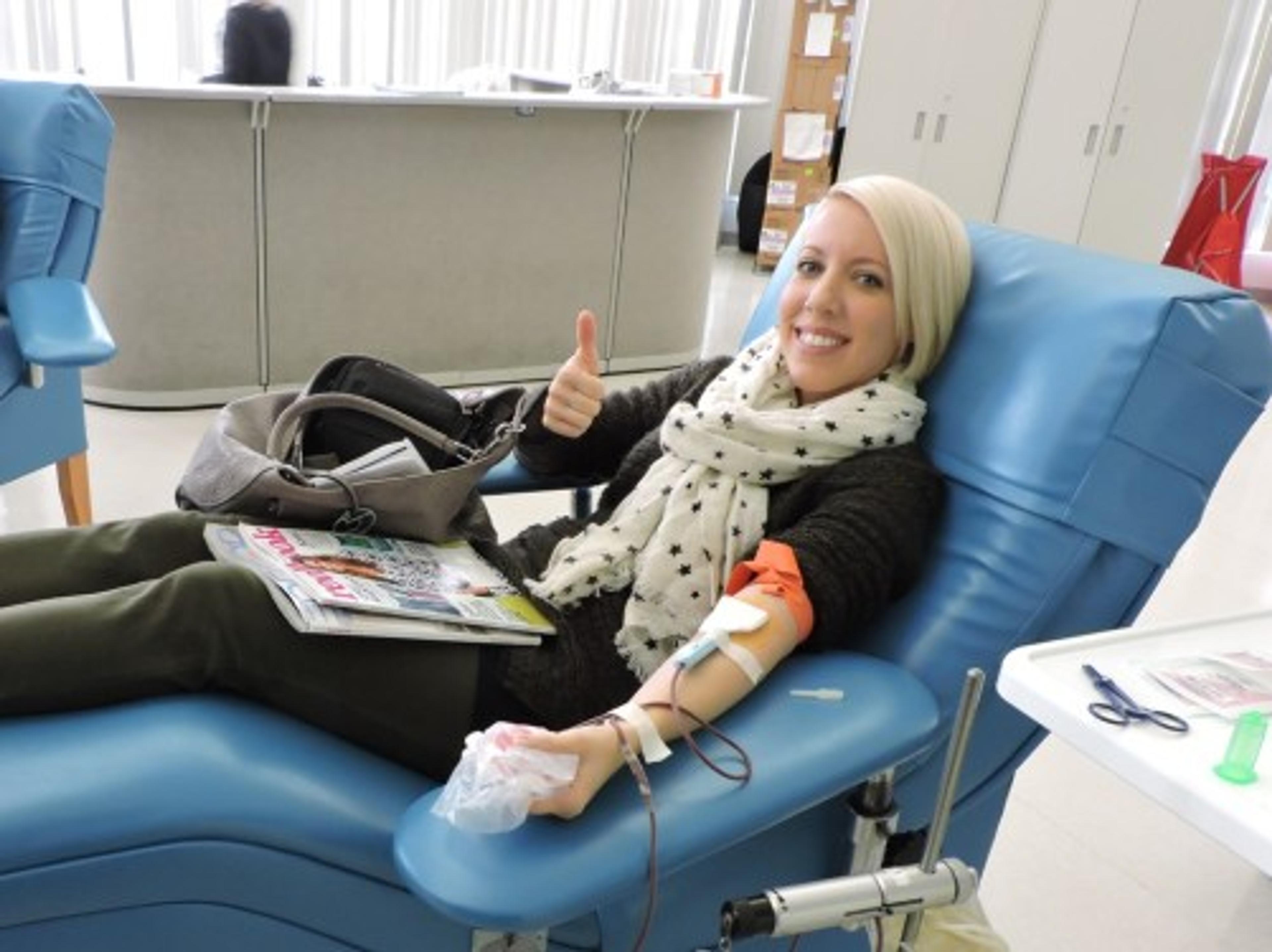#HealthyMe: My First Time as a Blood Donor

Julie Bitely
| 3 min read

I always look away when I have blood drawn at the doctor’s office, thankful when it’s over.
However, a dismal blood donation statistic was something I couldn’t ignore.
Only three to five percent of the general population donates blood on a regular basis. I discovered those numbers while researching a recent Michigan Blues Perspectives story about an event to diversify the blood supply.
The low donation rates shocked me, and my heart sunk realizing I was part of the problem.
Despite being perfectly healthy, I’ve never donated blood. In high school and college, I weighed less than the 110-pound requirement to donate. That, ahem, hasn’t been my excuse for a few years now. So, what was holding me back from giving a pint, which has the potential to save up to three lives?
Time. Lack of awareness. Maybe a little fear.
It may seem counterintuitive, but I also think my good health played a role in not stepping up. I’ve never needed a blood transfusion. I also don’t have immediate family members who’ve needed blood to save their lives. (I’m gratefully knocking on all the nearby wood.)
The one time I’ve needed to stay overnight in a hospital bed was the occasion of my daughter’s birth. That was an event full of joy, not fear or trauma. Still, just because I haven’t needed blood, doesn’t mean that my blood isn’t needed.
So, on a recent Tuesday morning, I donated blood for the first time. I made an appointment at the Michigan Blood donation center on Fuller Avenue. After a quick health questionnaire and screening, I was sitting in a comfy blue chair. There was a pinch as the needle went in – I still didn’t look – and my pint-sized donation was ready in about 15 minutes. Cookies and juice followed and I was out the door, on with the rest of my day. The whole thing took a little over an hour.
It was seriously no big deal. Except to the hospital patient or patients that may need my donation.

Yes, I ate two cookies.
According to Michigan Blood, there are no shortage of people needing the life-saving blood products they provide. My blood could go to one of the 4.5 million Americans who would die each year without blood transfusions. On average, one out of every seven people entering the hospital will need blood. Someone needs blood every two seconds.
I don’t want a pat on the back for donating blood. That goes to lifetime blood donors, which I aspire to be someday. I really, sincerely hope that by writing this, I inspire someone just like me to make an appointment, or show up at the next community blood drive in your area. Every bit helps, and if just one more percent of all Americans would give, blood shortages would disappear for the foreseeable future, according to Michigan Blood.
Maybe you’re also busy, unaware, or a little freaked out by needles.
Just think about how freaked out the patient or the family members of the patient needing your blood feels. Then roll up your sleeve and do something to help.
Find a blood drive near you here.
Photo credit: Michigan Blood staff/Julie Bitely





